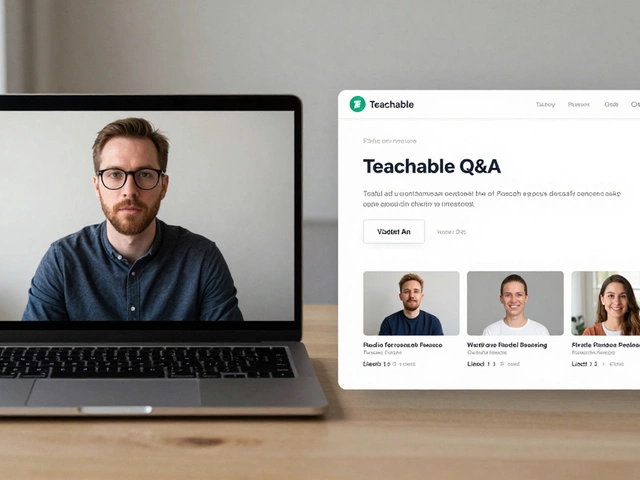Studying abroad doesn’t have to mean taking on decades of debt or waiting years to save up. Every year, thousands of students from low-income backgrounds go overseas - not because they’re rich, but because they found the right paths. You don’t need a trust fund to study in Germany, Canada, or even the U.S. You just need to know where to look and how to play the system.
Start with countries that offer free or low-cost tuition
Not all countries charge international students the same. Some treat education like a public service, not a profit center. Germany, Norway, Finland, and Austria offer free tuition at public universities for international students - even at the bachelor’s level. You’ll still pay around €100-€300 per semester for administrative fees, but that’s less than a month’s rent in many cities.In Canada, tuition for international students is lower than in the U.S. or the U.K. - and some provinces like Quebec offer even better rates for students from certain countries. Public universities in France charge around €2,770 per year for bachelor’s degrees, regardless of nationality. That’s a fraction of what you’d pay in Australia or the U.S.
These countries don’t hand out free degrees to everyone. You still need to prove you can cover living costs. But that’s easier than paying $40,000 a year in tuition. And many of these countries let you work part-time while studying - up to 20 hours a week - which helps cover rent, food, and books.
Apply for scholarships - not just the big ones
Most students think scholarships are for top 1% students with perfect grades and Olympic medals. That’s not true. There are hundreds of scholarships designed for students with average grades, financial need, or specific backgrounds.The Erasmus+ Program funds study in Europe for students from over 100 countries. You get a monthly stipend of €800-€1,200, plus travel costs. You don’t need straight A’s - you just need to show you’re serious.
The DAAD Scholarships from Germany offer full funding for international students, including monthly payments of €850-€1,200, health insurance, and travel allowance. You can apply even if you’re still in your final year of high school.
Look for niche scholarships too. The Agnes Jenks Scholarship supports women from developing countries studying in the U.S. The Commonwealth Scholarships fund students from over 50 Commonwealth countries to study in the U.K. Even smaller ones like the Rotary Foundation Global Grants or Hubert H. Humphrey Fellowship offer full funding for specific fields.
Use free tools like ScholarshipPortal or Studyportals to filter by country, field, and financial need. Don’t wait for deadlines - set reminders. Many scholarships open 12-18 months in advance.
Work your way through school
In countries like Canada, Australia, and Germany, international students can legally work 20 hours a week during term and full-time during breaks. That’s not pocket money - that’s rent money.On-campus jobs are easiest to get. Libraries, cafeterias, labs, and student offices hire international students because they don’t need to go through complex visa processes. Pay is usually minimum wage or slightly above - around $15-$20 per hour. Work 15 hours a week at $18/hour? That’s $2,700 a semester. Enough to cover groceries, textbooks, and a bus pass.
Some universities even offer paid research assistant positions. If you’re studying biology, engineering, or computer science, ask professors if they need help with data entry, lab prep, or coding. These jobs pay more and look great on your resume.
Don’t underestimate side gigs. Tutoring high school students in math or English online can earn you $25-$40/hour. Freelance writing, translating, or graphic design on platforms like Fiverr or Upwork can bring in extra cash without leaving your dorm.

Choose the right program - not the most expensive one
Not all degrees cost the same. A two-year master’s in public health in the Netherlands might cost $15,000 total. A four-year bachelor’s in business in the U.S. could cost $120,000. The difference isn’t just in tuition - it’s in time.Consider shorter programs. Many countries offer one-year master’s degrees that are just as respected as two-year ones. In the U.K., a master’s is typically 12 months. In Australia, you can finish a master’s in 1.5 years. Less time = less money spent.
Look for programs that include internships. Some universities in Switzerland, Sweden, and Canada tie internships into their curriculum. You get paid while you learn. Some internships pay $2,000-$4,000 per month. That can cover half your tuition.
Also, avoid private universities unless you have a full scholarship. Public universities are almost always cheaper and more reputable. A degree from the University of Toronto costs less than half of what you’d pay at Ryerson - and employers know the difference.
Use government and nonprofit aid
Your home country might have programs to help you study abroad. India’s Ministry of Education offers the Prime Minister’s Research Fellowship for students going to top global universities. Nigeria’s Tertiary Education Trust Fund (TETFund) supports students studying in approved countries. Even countries like Pakistan and Bangladesh have government-funded scholarships for overseas study.Nonprofits like Rotary International, UNESCO, and the Ford Foundation offer grants for students from developing nations. These aren’t competitive in the way you think - they’re looking for people who will go back home and create change.
Check with your local education ministry or embassy. They often have lists of approved scholarships and application deadlines. Many students miss out simply because they didn’t ask.

Start early - and be strategic
The biggest mistake students make? Waiting until senior year to think about studying abroad. If you’re 16 and thinking about it, you’re already ahead. Start building your profile now.- Get good grades - not perfect, but consistent.
- Learn English if you’re not a native speaker. IELTS or TOEFL scores are required for most programs.
- Volunteer. It shows you’re not just looking for a free ride - you care about contributing.
- Write a clear personal statement. Tell your story. Why do you want to study abroad? What will you do with the degree? What obstacles have you overcome?
Apply to 5-7 schools. Not just the top 3. Mix in one or two safety schools with generous aid packages. Some universities in Finland, Sweden, and Hungary offer automatic scholarships based on your application - no extra essay needed.
What not to do
Don’t fall for agencies that promise “guaranteed admission” for $5,000. Most of them are scams. You can apply to universities yourself for free.Don’t take out private student loans unless you have a co-signer and a clear plan to repay. Interest rates can hit 12% or more. You’ll be paying for 15 years.
Don’t assume you need to go to the U.S. or U.K. The best education isn’t always the most expensive. A degree from the University of Copenhagen or the University of Tokyo is just as respected - and costs a tenth as much.
Real example: Maria from Mexico
Maria didn’t have $10,000 saved. Her parents were teachers. She applied to a public university in Germany for a degree in environmental science. She got into the DAAD scholarship. It covered her tuition, health insurance, and gave her €850 a month. She worked 12 hours a week at the university library. By her second year, she had saved enough to travel home for Christmas. She graduated with no debt. Today, she works for the United Nations in Nairobi.You don’t need to be rich. You just need to be smart, persistent, and willing to plan ahead.
Can I study abroad with no money at all?
Yes - but you need to be strategic. Countries like Germany, Norway, and Finland offer free tuition. Combine that with scholarships, part-time work, and living frugally, and you can study abroad with little to no upfront money. You’ll still need to cover living costs, but many students do this by working on campus, applying for stipends, and choosing low-cost cities.
Are there scholarships for students with average grades?
Absolutely. Many scholarships focus on financial need, leadership, community service, or specific fields - not just grades. Programs like Erasmus+, DAAD, and Rotary Foundation often prioritize motivation and potential over GPA. A 3.0 GPA with a strong personal story can beat a 4.0 with no context.
How do I find scholarships I’m actually eligible for?
Use free platforms like ScholarshipPortal, Studyportals, or your country’s education ministry website. Filter by your nationality, field of study, and financial need. Set up email alerts. Apply to at least 10 scholarships - even small ones. Many go unclaimed because students don’t apply.
Can I work while studying abroad as an international student?
Yes, in most countries. Canada, Australia, Germany, and France allow international students to work 20 hours per week during term. In the U.K., it’s 20 hours for degree students. Some countries like Japan and South Korea have stricter rules, so check visa conditions. On-campus jobs are easiest to get and don’t require extra permits.
Is it better to study in Europe or North America if I’m on a budget?
Europe is usually cheaper. Public universities in Germany, France, and Finland charge little to no tuition. North American schools cost more, but Canada offers better work rights and lower living costs than the U.S. If you’re focused on minimizing debt, Europe is the better bet. If you want to work after graduation, Canada and Australia offer clearer paths to residency.
What if I’m from a developing country? Are there special programs for me?
Yes. Many governments and nonprofits target students from developing nations. Examples include the Commonwealth Scholarships (U.K.), Aga Khan Foundation Scholarships, and the World Bank Scholarships. Your own country’s education ministry may also have partnerships with universities abroad. Always check with your local embassy - they often have lists of funded opportunities.







0 Comments